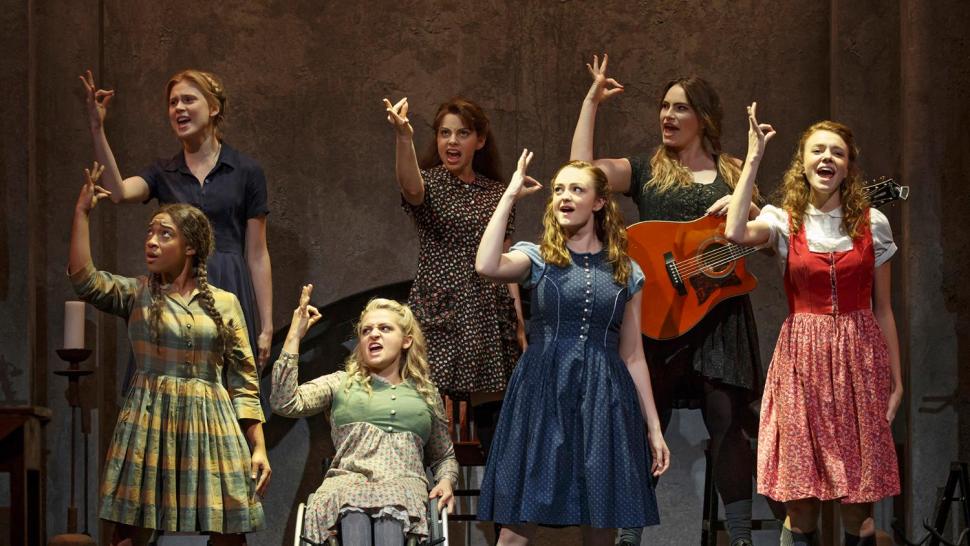available for purchase
at this time.
Link Roundup! – 4/1/16
Link Roundups feature articles and bits of internet goodness that our dramaturgy team digs up. If you find something you want to send our way, drop us a line on Facebook or Twitter!
♦♦♦♦♦

Devlin’s set for the musical “American Psycho” at the Almeida Theatre, in London. The production is transferring to Broadway. Courtesy Robbie Jack / Corbis
Set designer Es Devlin and her work is featured in The New Yorker this week:
In theatre terms, this is the age of Es Devlin. She is theatre’s postmodern expert, and has an instinctive sense of how Shakespeare and opera and fashion and pop concerts might draw from the same dark web of psychological information. Each of her designs is an attack on the notion that a set is merely scenery. She is in demand because she can enter the psychic ether of each production and make it glow with significance. She told me, “A stage setting is not a background, it is an environment”—something that directors and actors can respond to. “Sometimes what these people want is a liberator, someone who might encourage them to defy gravity.”
♦♦♦♦♦
Vox reports on the recent controversy about Hamilton‘s casting notice:
As it has everywhere else, diversity has become a flashpoint conversation on Broadway over the past few years. And Hamilton‘s approach to its subject matter — using a blatantly diverse cast to reclaim historical narratives traditionally populated by white actors — has become so iconic that these days on Broadway, “Hamilton casting” is a commonly discussed production strategy. The casting notice recently posted to the show’s website (and later edited) originally explicitly sought nonwhite actors to audition for the lead roles, a way of subverting theater’s typical white-as-default casting bias.
♦♦♦♦♦

Treshelle Edmond, Ali Stroker, Amelia Hensley, Lauren Luiz, Kathryn Gallagher, Krysta Rodriguez and Alexandra Winter in Spring Awakening (Joan Marcus )
Playbill has an article about the shifting dynamic between casting directors and actors with disabilities:
Alexandria Wailes, an actress who was recently seen on Broadway as Marlee Matlin’s replacement in Deaf West’s Spring Awakening (she was also the associate choreographer), believes that the workshops were helpful in teaching her how to be “authentic and honest.” She explained that there is an expectation from directors for actors who are Deaf to fit the mold of actors who are hearing in terms of using minimal facial expression. However, sign language is four-dimensional. “Facial expression is a part of the language. There’s a lot of information that is shared on the face,” she says. Wailes was happy to discover that she did not need to imitate hearing actors and that “as long as the information is present [the casting directors] will read it.”
♦♦♦♦♦
The Guthrie’ recently posted an interview with their new director of production, David Stewart, a leader and mentor in the field of Diversity & Inclusion:
In my opinion, the issue in production is that it’s been a pretty homogenous, white, male-centric profession. And I would say that the majority of production managers in the country are white, straight men. And we tend to have small networks that we work with, and when we’re looking at hiring we tend to be more reactionary than proactive. “Hey, I need a welder. We need to get a welder in here next week, John’s retiring.” And then it’s panic. We don’t strategize about a transition plan or a lineage plan, so oftentimes we’re in that reactive mode. The Washington Post did this really interesting article where they said that for white folks, out of every 100 friends they have, they only have three friends of color. When you get to the theater industry, you’d think it would go in the opposite direction, but it actually narrows down even further. So, when Joe Production Manager is looking for X, Y or Z position, he immediately goes to his network, which is 97 percent white. Part of it is a network issue.